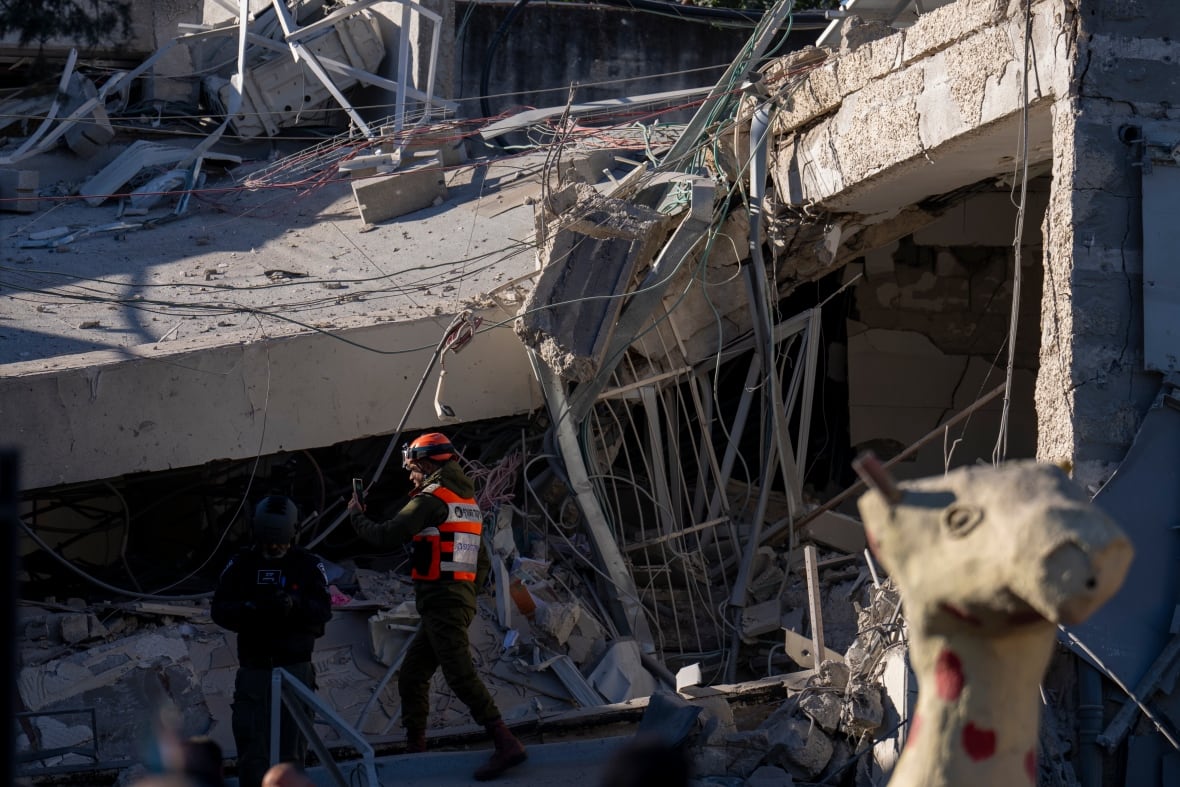Israel launched strikes against ports and energy infrastructure in Houthi-held parts of Yemen early on Thursday and threatened more attacks against the Iran-aligned militant group, which has launched hundreds of missiles at Israel over the past year.
As Israeli jets were in the air, the Israeli military said it intercepted a missile headed toward central Israel, which destroyed a school building in the town of Ramat Efal with what a military spokesperson described as falling shrapnel.
The Israeli attack, involving 14 fighter jets and other aircraft, came in two waves, with a first series of strikes on the ports of Salif and Ras Issa and a second series hitting the Yemeni capital, Sanaa, military spokesperson Lt.-Col. Nadav Shoshani told reporters.

"After Hamas, Hezbollah and the Assad regime in Syria, the Houthis are nearly the last remaining arm of Iran's axis of evil. They are learning and they will learn the hard way, that whoever harms Israel — pays a very heavy price for it," said Israeli Prime Minister Benjamin Netanyahu.
Hamas and Lebanon's Hezbollah are also allies of Iran.
Al Masirah TV, the main television news outlet run by the Houthis, said the airstrikes killed nine people, seven in Salif and two in the Ras Issa oil facility, both in the western province of Hodeidah.
- Federal government adds Yemen-based Houthis to terror list
- Israeli troops will occupy buffer zone inside Syria for the foreseeable future, says Netanyahu
In Sanaa, the strikes also targeted two central power stations south and north of the capital, which Al Masirah said had cut electricity to thousands of families.
The Israeli attacks followed a strike on Monday by U.S. aircraft against a command and control facility operated by the Houthis, which control much of Yemen.

Red Sea hostilities
The Houthis — who have launched attacks on international shipping near Yemen since November last year, in solidarity with Palestinians in Israel's war with Hamas — said they had targeted the Israeli city of Tel Aviv on the same night with two ballistic missiles and hit "precise military targets."
They also vowed to respond to the Israeli attacks.
"The Israeli attack will not deter Yemen from responding to this heinous aggression and supporting Gaza," the group's military spokesperson Yahya Saree said in a televised speech.
Israeli Defence Minister Israel Katz said Israel would continue to respond to Houthi attacks.
"Whoever raises a hand against the state of Israel, his hand will be cut off; whoever harms, will be harmed sevenfold," Katz said in a post on X.
The Israeli military said specialists were examining the site of the strike in Ramat Efal and it was trying to confirm whether one or two missiles had been fired.
Some Israeli media reported that the missile had hit the school, but Shoshani said the initial indications suggested it was hit by missile debris.
One possibility was that the fuel tank "which is an enormous piece of metal, kept going" after the missile was intercepted, he said.
- Houthis claim responsibility for deadly Tel Aviv drone strike
- 2 dead, 6 injured after suspected Houthi attack on commercial ship near Yemen, U.S. officials say
The Houthis have targeted some 100 merchant vessels with missiles and drones since the Israel-Hamas war in the Gaza Strip started in October 2023 after Hamas led a surprise attack on Israel.
The Houthis have seized one vessel and sunk two in a campaign that has also killed four sailors. Other missiles and drones have either been intercepted by separate U.S.- and European-led coalitions in the Red Sea or failed to reach their targets, which have also included Western military vessels.
The rebels maintain that they target ships linked to Israel, the U.S. or the United Kingdom to force an end to Israel's campaign against Hamas in Gaza. However, many of the ships attacked have little or no connection to the conflict, including some bound for Iran.
The Houthis have battled a Saudi-led coalition into a stalemate over several years in a wider Yemen war that's killed more than 150,000 people, including civilians. The conflict also has created one of the world's worst humanitarian disasters that's believed to killed tens of thousands more.

